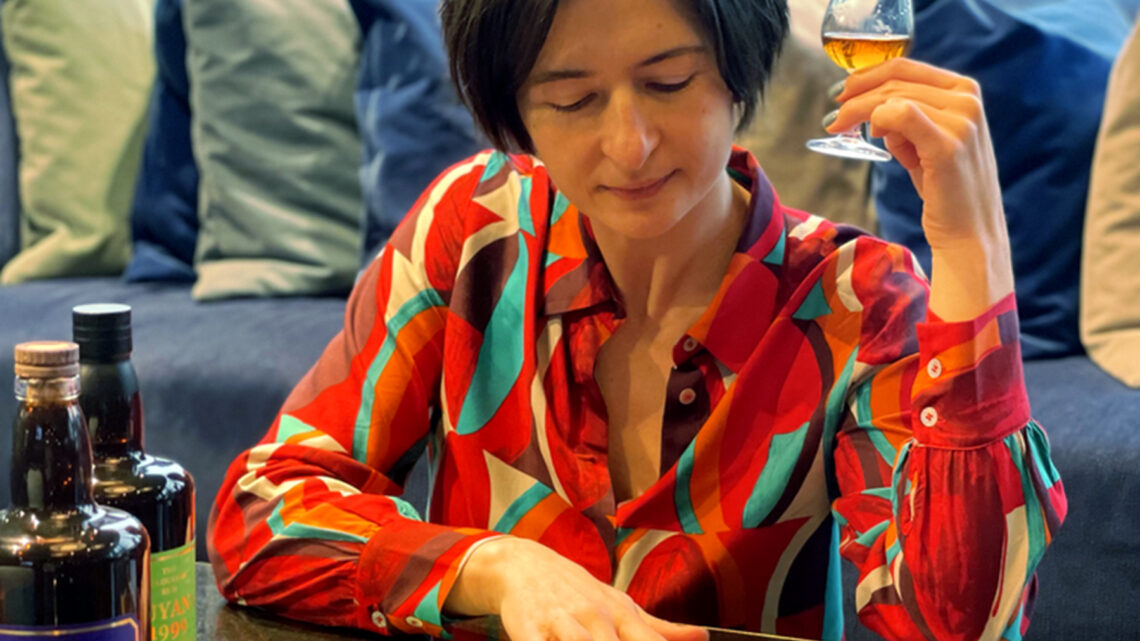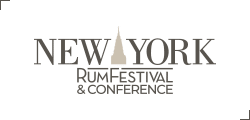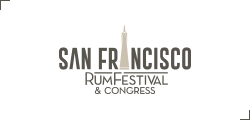Colours of Rum, Brand Ambassador: MAGDALENA RESZKE

Magdalena Reszke, brand ambassador, has established herself as a true rum lover and a dedicated rum geek, immersing herself in its rich history, production processes, and diverse flavor profiles. Learn more about her in this interview:
TRL: What does the rum mean to you? What made you fall in love with rum and when did it happen?
Rum means courage, passion, respect, and fun.
I can still remember the taste of the first whisky I fell in love with. I caught myself figuring out what was more surprising to me, that I smelled white pepper or that I knew that the aroma was white pepper. It’s been more than ten years now since I’ve been fortunate enough to try some old and rare spirits. But this was rum that has taken me by surprise. Could there be something better than whisky? And my journey has become even more complex, when, together with The Colours of Rum, we select casks from all Caribbean countries to find the most engaging tastes and aromas
TRL: Three essential characteristics that define the rum according to your perspective.
Incredible craftsmanship, attention to detail, passion.
TRL: What is the most important contribution you have made in the rum industry?
The most important contribution made in the rum industry has been the creation of single-cask editions, challenging the conventional notion that rum requires extra sugar and additional ingredients to be delicious. Through these editions, we have demonstrated that rum can achieve exceptional quality, possess a complex aroma profile, and even exhibit natural sweetness without the need for additives. By showcasing the purity and inherent richness of rum, we aim to redefine expectations and elevate the appreciation of this spirit among enthusiasts and connoisseurs.
TRL: Benefits that the rum industry has given you.
One of the most valuable aspects has been the opportunity to connect with ambitious, open-minded individuals who are passionate about their work. Engaging with these professionals has not only provided insight into the industry but has also fostered a dynamic and enjoyable work environment.
Conducting masterclasses within the rum industry has been particularly transformative. It pushed me to step out of my comfort zone and overcome my fear of public speaking. This experience not only enhanced my communication skills but also allowed me to share knowledge and engage with a diverse audience. The combination of learning from others and contributing through teaching has enriched my overall experience in the rum industry.
TRL: What’s another thing you are passionate about, in addition to rum? Why?
Rock climbing. It’s physically demanding and mentally challenging. Completing a climb, while overcoming fears and pushing my limits is fulfilling, highly rewarding, and addicting
TRL: What is your favorite place for drinking rum?
Caribbean 🙂
TRL: Favorite drink + Recipe
I prefer my rum neat, but once in a bar, I’ll go for Jungle Bird. Rum + red bitter liquor + pineapple juice, lime juice, and sugar syrup.
TRL: Why is it important to educate the rum consumer?
Educating the rum consumer is important for several reasons, and let me name a few:
– Appreciation of quality: Understanding the production methods, aging processes, and various types of rum can help consumers appreciate the nuances and qualities of different rums. This knowledge enables them to make more informed choices and develop a discerning palate for high-quality products.
– Cultural appreciation: Rum is often tied to the history and culture of specific regions, such as the Caribbean. Educating consumers about the cultural significance of rum can deepen their appreciation for the drink and foster respect for the traditions and craftsmanship associated with its production.
– Support for artisanal producers: Education about the different types of rum and the production processes can lead consumers to explore and support smaller, artisanal producers. This can contribute to a more diverse and sustainable industry, fostering a connection between consumers and producers.
Overall, an educated consumer base contributes to a healthier and more vibrant rum industry. It promotes responsible consumption, encourages a diverse and competitive market, and fosters a community of enthusiasts who appreciate the art and craftsmanship behind the production of rum.
TRL: Any tips to train the palate and taste a good premium rum?
Developing your palate is a personal journey. The more you explore and pay attention to details, the better you’ll become at appreciating the complexity and nuances of premium rums.
Compare different premium rums side by side to identify the unique characteristics of each, try pairing them with dark chocolate, nuts, or cheeses to see how the flavors interact, and, last but not least, take your time.
TRL: How can rum contribute to improving the crisis in some countries?
The rum industry has the potential to contribute to the improvement of economic, social, and environmental conditions in certain countries facing crises.
The production of rum, from cultivating sugarcane to distillation and bottling, requires a workforce. By expanding or sustaining rum production, the industry can contribute to job creation, providing employment opportunities for local communities.
Countries with a rich history of rum production often attract tourists interested in exploring the cultural and historical aspects of the industry. This can boost tourism, creating additional income streams and supporting local businesses.
Rum producers can engage in community development initiatives, such as investing in education, healthcare, and infrastructure. This contributes to the overall well-being of local communities and helps build a positive relationship between the industry and its surroundings.
TRL: Is the commitment to sustainable development the key to success for the permanence of the rum industry in the world? Why?
Yes, the commitment to sustainability is an essential element for success. The rum industry can implement sustainable and environmentally friendly practices. This includes responsible agriculture, water conservation, waste reduction, and energy efficiency. Adopting sustainable practices not only benefits the environment but can also enhance the industry’s reputation and marketability.
TRL: Who would like to meet in the rum industry? What would you say to him/her?
I would like to meet master distillers, owners of successful rum brands, and educators. I would like to understand their journey, challenges, and successes which can be both inspiring and informative.
TRL: What is your advice for new generations in the rum industry?
Learn the craft by investing time in learning the intricacies of rum production. Understand the entire process, from sugarcane cultivation to distillation and aging. This foundational knowledge will provide you with a solid understanding of the industry.
Explore different styles of rum to expand your palate and appreciation for the variety within the industry. The world of rum is diverse, with various styles influenced by geographical regions, production methods, and aging processes.
Stay curious and open-minded.
TRL: How can people learn more about you? Website? Social media page?
https://coloursofrum.com/
https://www.instagram.com/the_colours_of_rum/
About The Author
Creative Director for EmpresasFH and Director of HOFFMANNdesign. Born and raised in Caracas, Venezuela, Mr. Hoffmann has been one of the most important designers for prestigious companies in South America, including Disney, Cartoon Network, Mattel among others.














